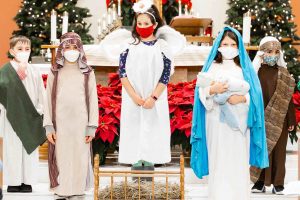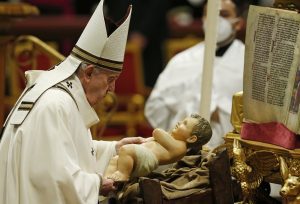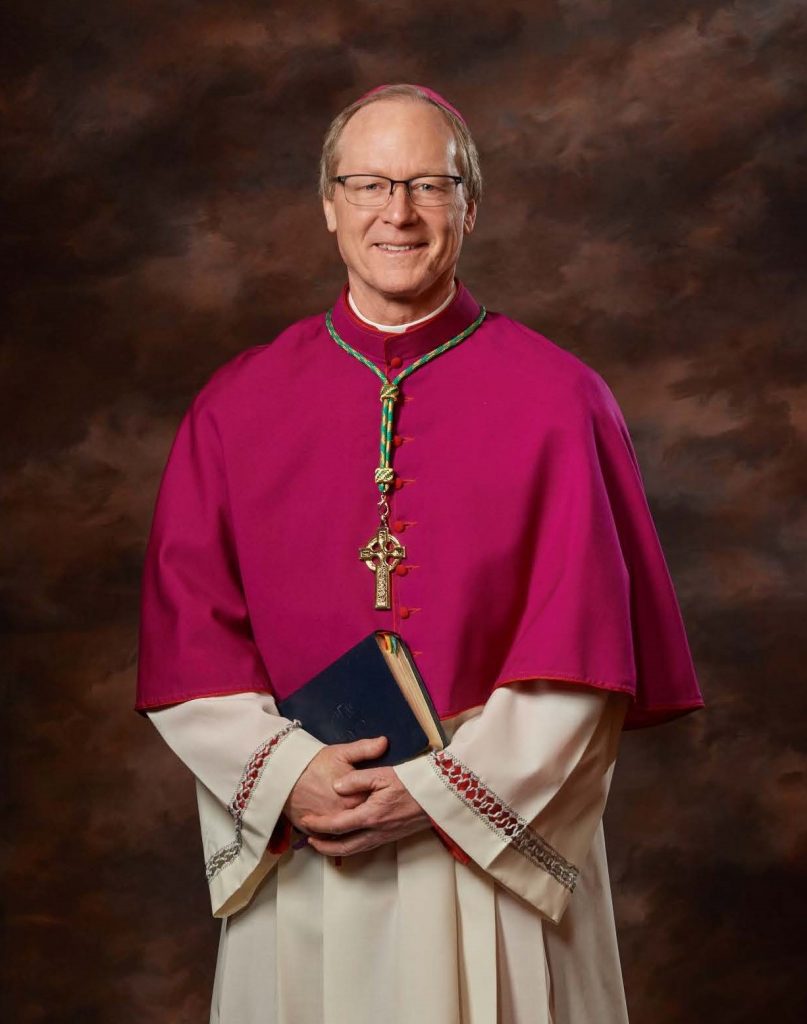
Written by: Sister Josephine Garrett is a Sister of the Holy Family of Nazareth and a licensed counselor
New Year’s celebrations can be a mixed experience.
On one hand, the holidays have brought us opportunities to be renewed in our relationships with family and friends. On the other hand, secular media can present this sort of “new year, new you” approach that may not really jive with our actual experiences.
We can feel this pressure for Jan. 1 to be a miraculous reset; all the struggles and sufferings of the previous year automatically at midnight lose their impact in our lives.
As we head into 2022, I wonder if this pressure is even more profound. We are carrying large individual and communal burdens into the new year.
How do we remain open to God’s desire to make all things new and the inherent invitation in a new year to begin anew, and also be realistic about the fact that at the stroke of midnight our struggles will not automatically diminish?
I believe the answer is by looking to the struggles, sufferings and heavy burdens that we are carrying with us over the finish line of 2021 and finding in them God’s invitation.
Some of us are entering 2022 as COVID-19 long-haulers. Some of us are entering 2022 with more pronounced mental health struggles than before. Some of us need to be renewed in our physical health as our bodies manifest the stresses of the past two years.
Some of us are carrying the painful burdens connected to being Black or brown, American and Catholic, pains that have only increased over the past two years. Some of us, after the pandemic, have reprioritized family life.
Some of us have become disillusioned with the world of “Catholic fame” and this grace-filled disillusionment has allowed us to set our sights back on the primacy of the present moment and context in which we find ourselves as the stuff of our sanctification and having the authority to bring about God’s justice, love and peace.
Some of us have reached new horizons in our prayer and relationship with God, yet some of us have strayed from prayer and into a life of subtle pride and self-sufficiency, which is the fruit of a life lacking prayer.
Is there a thematic invitation to not only begin anew but strive for the newness that is the promise of the kingdom contained in all that we will carry with us into the new year?
I believe there is. We sometimes struggle with the two-world stance that is required of a Catholic. Catholics must stand with a foot in the temporal world and with a foot in eternity.
We cannot place both our feet in whatever matter has garnered our attention over the past two years; be it the pandemic, cries for justice, political strife, family dynamics or whatever it has been for you. We will do ourselves a grave injustice.
If we are to begin anew this year, we must take a proper stance in all that we are facing as individuals and as a community of God’s children.
One foot in the world, which is full of brokenness, and one in eternity, which is the source of constant conversion and renewal, even as we struggle. This renewal is always about bringing about the family of God.
For example, what did the pandemic prove to us? That we are painfully interconnected. As Pope Benedict XVI once said, “No one sins alone. No one is saved alone.”
Likewise, cries for social justice over the past two years have been filled with the same message.
Black or brown skin, and the ethnicities and heritages that are paired with that skin, does not lessen the right of the individual to be a full heir of the kingdom of God and to proclaim to the church, as “servant of God” Sister Thea Bowman once said, “I bring myself, my Black self, all that I am, all that I have, all that I hope to become.”
In humility, I would add; because this is my family; this church is as much my family as the next person’s. We could take many other matters we will carry across the line from 2021 to 2022, and upon reflection, find at their root a matter of the family of God.
Whatever it is you are called to be renewed in with this coming year — physically, mentally or spiritually — let it be for and about encounter. To aid you in increasing your capacity to show up in the family of God, bringing your whole self as a gift to the family of God, come what may; in the midst of struggles and also joys.
We know that it is only through a sincere gift of ourselves that we will know ourselves, and it is only in this dimension of gift, as Los Angeles Auxiliary Bishop Robert E. Barron once called it, that the family of God, which we long for, will be built up and realized.
The way we begin anew is to, in all things, in all our resolutions, keep our eyes fixed on the glory of the coming of the Lord and the building up of God’s family in Christ.










